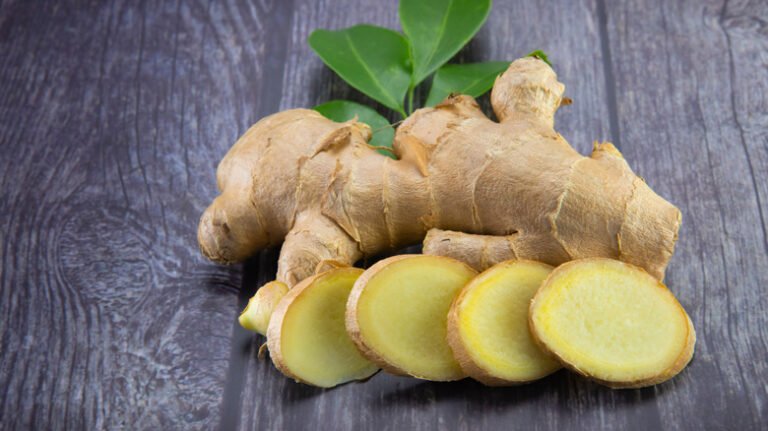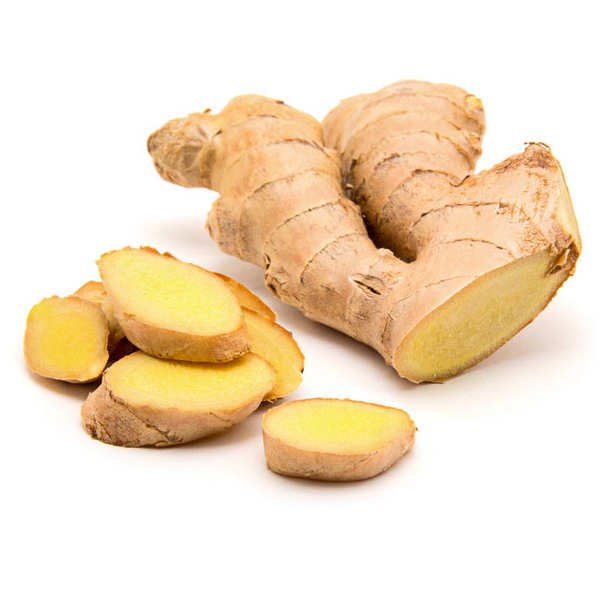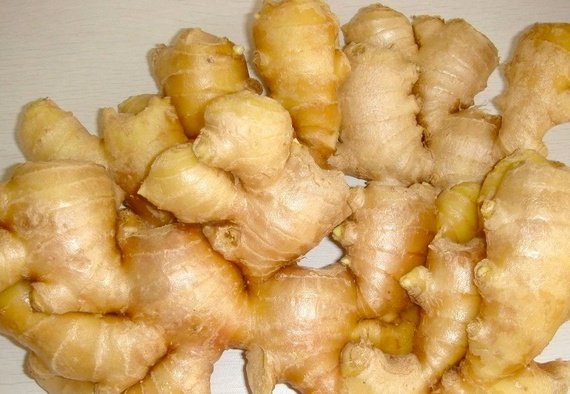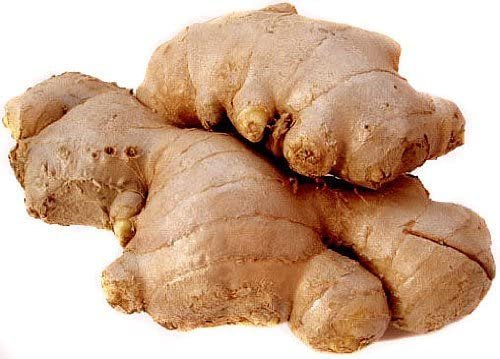Ginger is a well-known natural remedy that has been used for a variety of ailments. Ginger is a great ingredient for cooking because of its nutritional and culinary benefits. Fresh ginger is an inexpensive root plant that can be easily sourced.
How do you use fresh ginger? It’s easiest to use fresh ginger when it has been sliced, minced or mashed into paste. Most commonly, fresh ginger is used to reduce bitter tastes, intensify or temper other flavors, and cleanse your palate.
Make fresh ginger tea by boiling water, adding honey and sprinkling fresh ginger slices on top.
This guide will show you how to use fresh ginger for great health and delicious flavor.
The Ultimate Guide for Using Fresh Ginger
Ginger is a beautiful little flowering plant and is part of the same family as some other powerful spices like galangal or cardamom. The root or rhizome is where most of the medicinal properties of ginger are located.
Fresh ginger is a gnarled root. It’s not unlike the intricate roots found in bonsai plants, if you have ever seen one. Fresh ginger should have a light, shiny, almost-papery skin. The skin will become thicker and fibrous as the root matures.
Most common ginger’s inner flesh has a yellowish hue. It also has a strong, bright, almost citrusy smell. You may find ginger with a pinkish hue or almost white color depending on where it comes from.
Choose smooth roots over old and wrinkled ginger. Select heavier roots to indicate higher nutritional value.
Fresh ginger is a spicy, hearty spice that packs a punch. If you are new to the space, it may take some time to adjust to, but you will soon be able to adapt your tastebuds.
Fresh Ginger
There are many ways that fresh ginger can be used, but here are some simple and well-known ways to make it suitable for your recipes.
These 3 ways are the best to use fresh ginger:
- Reduce Bitter Flavours - One great secret to ginger is its ability to reduce bitter tastes in food and drinks. Although bitterness is an indicator of vital nutrition, many people find it unpleasant and avoid bitter foods and beverages.
- Temper other Flavors Ginger is a great way of tempering the flavor. It’s similar to how salt intensifies sweetness. Citrus will brighten up creamy dishes.
- Palate Cleanser - Ginger is also great for cleansing your palate.
These are the top tips and tricks for peeling and cutting fresh ginger so that it is ready to be used.
How to Remove Fresh Ginger
It is very easy to peel fresh ginger, especially if it has a young root.
You can often just scrape off the papery peeling with a spoon. However, if you have a more mature root, you may need to use a paring knives.
To keep your root from being exposed to the air, only peel as much as you need right away.
How to Cut Fresh Ginger
Use a sharp chef’s knife to create thin ginger slices. This will allow you to cut the root perpendicularly to the fibers (against grain) but it will require a good knife to cut through the root.
How to Make Fresh Ginger
To create minced or chopped ginger, slice the ginger in thin slices.
Keep cutting into small pieces to fit each recipe.
How to Grrate Fresh Ginger
Only grate the ginger root portion you need.
The more efficient you can make with your ginger, the smaller the edge that is grate. Another article is dedicated to our top picks for ginger graters.
CookingW Ith Fresh Ginger
Ginger is a versatile spice that can be combined with a few fresh ingredients to bring out the best in sweet and savory dishes.
Ginger is often found in baked goods such as gingerbread cookies or ginger spice and molasses cakes.
It’s equally delicious in savory dishes such as ginger chicken and stir-fried with ginger, garlic. It is often used to enhance the flavor of spicy sauces or dishes.
You’ve probably had sushi at one time or another. The pink pickled ginger garnish adds a unique touch to almost any sushi roll.
Drinking Fresh Ginger
It’s a great way to add fresh ginger into your daily life by juicing or grating ginger.
You can make simple tea by adding it to your favourite juice or smoothie or adding some spice to an evening drink.
Ginger can be consumed by itself, or it can be diluted with water. Or you can combine it with other flavors that make it taste amazing.
These are the best combinations of fresh ginger:
- Turmeric
- Lemon & Honey
- Hot cocoa and cinnamon
- Juice of carrot, orange, pear, or apple
- Green Tea
We’ve included a tutorial from Chef Cynthia Louise on how to make ginger-infused ginger tea in the section for related questions.
Fresh Ginger Health Benefits
The main benefit of fresh ginger is its large number of useful antioxidants, much like turmeric root.
These benefits together can fight sickness and act as preventative measures to keep you healthy.
Let’s look at some of its more unique benefits.
Fresh Ginger Nutrition Facts
Vitamins are often the first thing you think of when it comes to nutrition. Many vitamins are found in ginger.
- Vitamin A This vitamin is known for protecting your eyes, skin and hair. It’s often used in cosmetics, hygiene products, and other personal care products.
- Vitamin C - Many people are familiar with Vitamin C. It supports the immune system and other good deeds.
- Vitamin A - The most important, however, is the abundance of B Vitamins in fresh ginger. This family of vitamins is not more important than A and C, but it’s more difficult to find so they are even more valuable.
- Ginger -Ginger can also provide many minerals, such as calcium, iron and magnesium. Each one of these minerals is important in maintaining a healthy body, good energy, and a functioning metabolic system.
- Amino acids- Ginger also has all 9 essential aminos as well as the conditionally essential amino acid arginine. This means that your body can only produce small amounts but you need more if you are under stress or dealing with illness. Essential amino acids are essential for your overall well-being and health. However, your body can’t synthesize them naturally so you must consume them through your diet.
While ginger root is very beneficial for your health, it should not be considered a panacea. Ginger root is best when taken in conjunction with a healthy diet.
Similar Questions
We hope that this article answers all of your questions. But just in case, here are some frequently asked questions.
Do you need to peel fresh ginger?
Depending on the way you use ginger, peeling it can be done for texture.
You can leave the skin on if you don’t intend to eat it directly, like if you are brewing it in tea or grating it very small. This is especially true if you have young ginger with thin skin.
The ginger root gets older, so the skin is more difficult to remove.
How can you preserve fresh ginger root?
It is easy to store fresh ginger. Wrap the roots in a towel and keep them dry.
They will keep fresh for up to 3 weeks in the fridge.
Can you freeze ginger?
You can freeze fresh ginger. Fresh ginger can be frozen up to 6 months. It also thaws quickly so it is easy to use whenever you need it.
What’s a good substitute to fresh ginger?
Ginger is a distinctive flavor. There is no substitute. However, you can substitute the following ingredients for ginger:
- Substitute equal amounts of allspice or mace for cinnamon, allspice, and nutmeg in baked goods
- In Cooking - Use turmeric, black pepper with nuts, cardamom or citrus zest to replace the original.
Ginger capsules are a great way to get the benefits of ginger in your diet.
To get the best health possible, choose organic when you can for nutritional supplements.
Can you substitute ground ginger for fresh ginger?
Although the flavor will not be exact, it is possible. Fresh ginger is more spicy and is used more often in making beverages or cooking savory dishes.
Ground ginger has a milder flavor and is more often used in baking. You can substitute fresh ginger for ground ginger in recipes that call for fresh ginger.
If you need ground ginger, this will work in reverse.
How can you make ginger-infused tea?
Although ginger tea has been mentioned throughout the article, we have not yet shared how to make it. Ginger tea is delicious and refreshing. It’s also immune-boosting.



